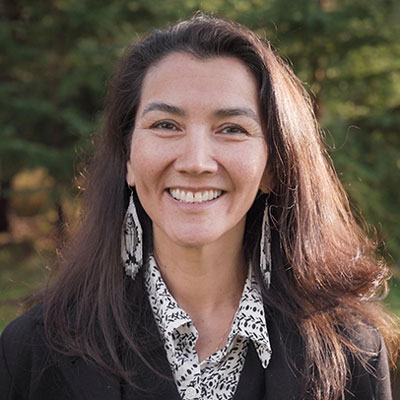Press Releases
Congressional Delegation Introduce Chugach Alaska Land Exchange and Oil Spill Recovery Act
Washington,
May 13, 2024
Congressional Delegation Introduce Chugach Alaska Land Exchange and Oil Spill Recovery Act Implements Regional Land Study, Helps Realize Benefits Promised Under ANCSA
Washington, DC – U.S. Representative Mary Sattler Peltola (D-AK) and U.S. Senators Lisa Murkowski and Dan Sullivan (both R-AK) introduced the Chugach Alaska Land Exchange and Oil Spill Recovery Act to direct a land exchange between the federal government and Chugach Alaska Corporation (Chugach). This exchange would resolve conflicts that exist between the Exxon Valdez Oil Spill (EVOS) Trustee Council’s Habitat Protection Program (the “Program”) goals for habitat conservation of surface lands impacted by EVOS and Chugach Alaska Corporation’s responsibilities to its Alaska Native shareholders under the Alaska Native Claims Settlement Act (ANCSA) to develop its subsurface rights under these same lands.
The land exchange directed by this legislation would require Chugach to trade 231,036 acres of subsurface estate (under surface fee and conservation easements on surface land owned by the federal government) for 65,403 acres of fee simple land owned by the federal government. Most of the lands that would be exchanged were identified in the Chugach Region Land Study and Report to Congress from December 2022. “35 years after the Exxon Valdez Oil Spill, the conversation on how to best serve the people, environment, and resources of Prince William Sound is still ongoing. A patchwork of conflicting surface and subsurface rights has left everyone unable to effectively use the land,” said Representative Peltola. “The Chugach Land Exchange and Oil Spill Recovery Act would free Chugach Alaska Corporation to use their lands for the benefit of their shareholders and give the federal government a clearly defined area to manage. This is a commonsense solution that gives everyone in Prince William Sound a clear understanding of land use and management." “The 1989 Exxon Valdez oil spill forever changed the lives of Alaskans, particularly those living in the Chugach region. Chugach’s subsurface rights were restricted and subjugated to the EVOS Program’s environmental conservation goals, which unfairly prevents Chugach from realizing the economic benefits of its mineral interests under ANCSA,” Senator Murkowski said.“I helped set this land exchange in motion in 2019 when I authored and shepherded a major lands package, which required the land study, into law. Now we are addressing its findings, permanently conserving EVOS program lands, and providing Chugach and its shareholders a fair resolution of their ANCSA claims.”
“Since its original passage in 1971, the Alaska Native Claims Settlement Act (ANCSA) has been amended many times to assist emerging needs of Alaska Native communities across the state,” Senator Sullivan said. “The Chugach Land Exchange Act should be no exception. This bill facilitates a land exchange for Chugach Alaska Corporation based on a congressionally-mandated study completed by the Bureau of Land Management and the Forest Service in late 2022. This legislation would provide Chugach with lands that will help create economic sustainability and cultural benefits for thousands of Alaska Native shareholders, as intended under ANCSA.” “Introducing this bill represents a meaningful and long-awaited step on the path towards healing for the Chugach region and shareholders following the devastation of the Exxon Valdez oil spill,” said Chugach Alaska Corporation’s Chairman of the Board Sheri Buretta. “Resolving the existing split-estate conflicts will empower Chugach to exercise self-determination for its people as intended by ANCSA. We are grateful for Senator Lisa Murkowski’s leadership, as well as the support of Senator Dan Sullivan and Representative Mary Peltola, in their ongoing advocacy for a fair and just land exchange on our behalf.”
BACKGROUND:
On March 24, 1989, the Exxon Valdez oil spill discharged approximately 11 million gallons of crude oil (enough to fill 17 Olympic-sized swimming pools) into Prince William Sound and adjoining waters in Alaska. It was one of the most environmentally damaging disasters in world history.
The Chugach Region experienced great social and economic harm from the oil spill. Government recovery efforts, though well-intentioned, also had negative impacts and did not always include the voices of the Alaska Native people who have stewarded these lands for millennia. Thirty-five years later, the people and the environment are still recovering.
Through Section 1113 of the John D. Dingell, Jr. Conservation, Management and Recreation Act of 2019 (sponsored by Murkowski; Public Law 116-9), Congress directed the Secretary of the Interior, in coordination with the Secretary of Agriculture and in consultation with Chugach Alaska Corporation, to conduct a study and provide a report to Congress assessing the social and economic impacts of the EVOS Trustee Council’s Program on Chugach, Chugach lands, and on the Chugach Region. The study was also required to identify sufficient acres of accessible and economically viable federal land that could be exchanged with Chugach.
Under the Program, the Trustee Council used funds acquired from the companies responsible for EVOS to purchase fee title to 134,121 acres of surface estate lands, and purchased conservation easements on an additional 66,073 acres of surface estate lands, from four of the five Village Corporations in the Chugach Region that had been conveyed to them under ANCSA. Chugach was not a party to any of these acquisitions but owns the subsurface, or mineral estate, for all of the lands in which interests were acquired by the federal government from the Village Corporationsunder the Program.
Some surface lands and conservation easements on surface lands acquired by the federal government under the Program went into the state and federal park systems, but most went into the Chugach National Forest, managed by the U.S. Forest Service.
The EVOS Program lands (fee surface estate lands and conservation easement lands) are subject to restrictions on any surface development that is inconsistent with maintaining their wilderness characteristics. Therefore, Chugach is effectively prohibited from taking any steps to develop its subsurface interests and needs alternative lands to realize the meaningful economic benefits promised in ANCSA.
### |

